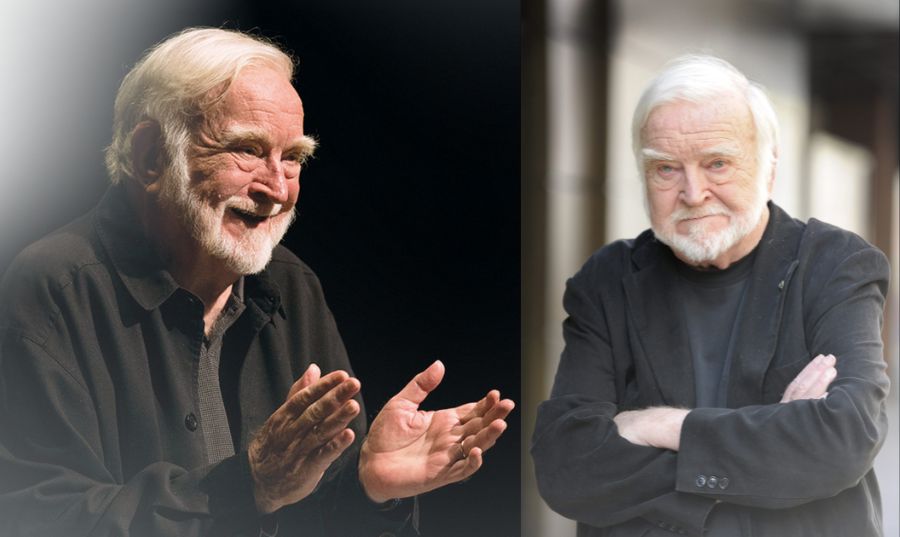Mihály Csíkszentmihályi, a Hungarian-American psychologist, is best known for his groundbreaking research on the psychological state of flow, a state of complete absorption and focus in which people are fully immersed in an activity for its own sake. His work has had a profound impact on our understanding of happiness, creativity, and the human experience.
What is flow in psychology?
Flow in psychology is being “in the zone.” It’s a state of complete focus and enjoyment where you’re totally absorbed in an activity. You feel challenged but in control, losing track of time and forgetting about yourself. It’s not just happiness but using your skills to the fullest and feeling genuinely engaged. You can experience flow in many activities, from painting to sports.
Delving Deeper: A Comprehensive Look into Child Psychology
Csikszentmihalyi’s Early Life and Education
Mihály Csíkszentmihályi was born in Fiume, Italy, in 1934. His family was Hungarian, and his father was a diplomat. World War II disrupted Csikszentmihalyi’s childhood, and he spent time in an Italian prison camp. Despite these challenges, he went on to study psychology at the University of Chicago, where he earned his Ph.D. in 1965.
Mihály Csíkszentmihályi Flow Experience
Csikszentmihalyi’s most famous work is his research on the flow experience. He began studying flow in the 1970s, and he went on to write extensively about it in his books, including Flow: The Psychology of Optimal Experience (1990) and Finding Flow: The Happiness Pursuit and the Rise of Positive Psychology (2003).
Csikszentmihalyi found that flow is characterized by a number of critical features, including:
- Complete concentration: People in flow are entirely focused on the activity at hand and are not distracted by thoughts of the past or future.
- A sense of control: People in flow feel that they are in control of their actions and that they are able to achieve their goals.
- Loss of self-consciousness: People in flow are so absorbed in the activity that they lose awareness of their egos.
- A sense of timelessness: People in the flow often feel that time is passing very quickly or that it has stopped altogether.
- Intrinsic motivation: People in flow are motivated to engage in the activity for its own sake rather than for any external rewards.
Csikszentmihalyi found that flow can occur in a wide range of activities, from playing music to painting to rock climbing. He also found that flow is about more than just feeling happy or excited. It is also about feeling challenged and engaged and about using one’s skills to the fullest.
Mihály Csíkszentmihályi Positive Psychology
Flow in psychology is like being “in the zone.” It’s when you’re completely absorbed and enjoying an activity, forgetting about everything else. You feel totally focused and challenged but in control. Time flies by, and you lose track of yourself. It’s more than just happiness; it’s about using your skills to their fullest and feeling genuinely engaged. You can experience flow in all sorts of activities, not just hobbies!
Csikszentmihalyi’s work has had a significant impact on our understanding of happiness and creativity. He has also shown that flow can be cultivated through practice and that it can lead to a number of benefits, including increased happiness, productivity, and creativity.
Mihály Csíkszentmihályi’s Books
Csikszentmihalyi has written several books on flow and positive psychology, including:
- Flow: The Psychology of Optimal Experience (1990)
- Finding Flow: The Happiness Pursuit and the Rise of Positive Psychology (2003)
- Creativity: Flow and the Psychology of Discovery (1996)
- Good Genes, Bad Genes: How Your Ancestors’ Legacy Affects Your Life (2010)
- Beyond Boredom and Anxiety: Experiencing Flow in Work and Play (1975)
Mihály Csíkszentmihályi Pronunciation
Here’s a breakdown of Mihály Csíkszentmihályi’s name to help you pronounce it correctly:
Mihaly (mee-high):
- “Mi” is pronounced like “mee” in “meet.”
- “haly” sounds like “high” with a very soft “l” at the end. The “h” is not silent, but it’s a gentle sound.
Csikszentmihalyi (chick-sent-mee-hah-yee):
- “Csiksz” is a bit tricky. There’s no direct equivalent sound in English. Start with a “ch” sound like in “church,” then add a soft “k” sound without fully closing your mouth.
- “ent” sounds like “ent” in “sent.”
- “Mihaly” pronunciation is the same as the first name explained above.
- “Yi” is pronounced like “ee” in “feet.”
Here are some additional tips for mastering the pronunciation:
- Listen to Audio Recordings: Search online for audio recordings of Mihály Csíkszentmihályi speaking. Mimic his pronunciation as best you can.
- Break it Down: Practice saying each syllable of the name separately, then gradually string them together.
- Focus on the Sounds: Concentrate on the individual sounds of the name rather than the spelling.
- Don’t Be Afraid to Try: The most important thing is to give it a shot! Even a close approximation is better than avoiding the name altogether.
By following these tips, you’ll be well on your way to pronouncing Mihály Csíkszentmihályi’s name with confidence.
Conclusion
Mihály Csíkszentmihályi became an amazing and influential psychologist who made big contributions to our information of happiness, creativity, and the human experience. His work on waft has had a profound impact on our considering the way to live a greater gratifying life.






